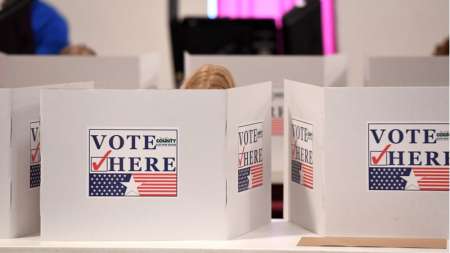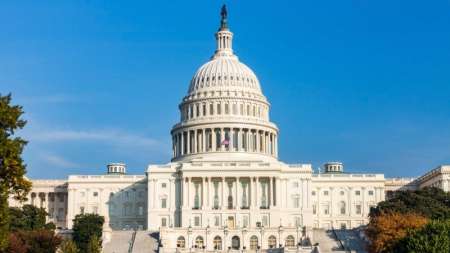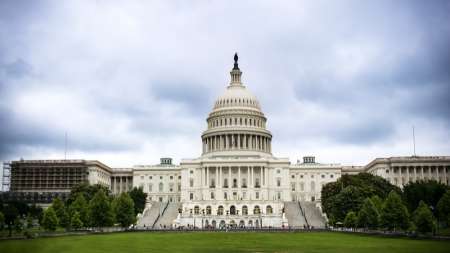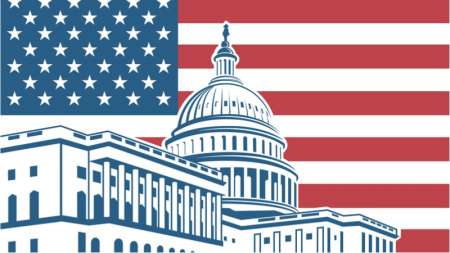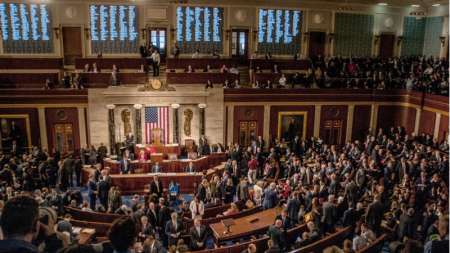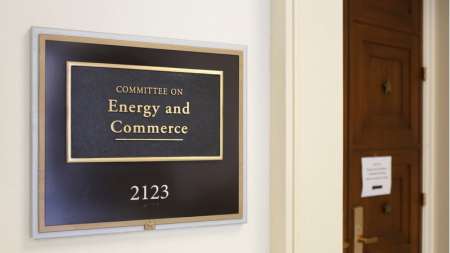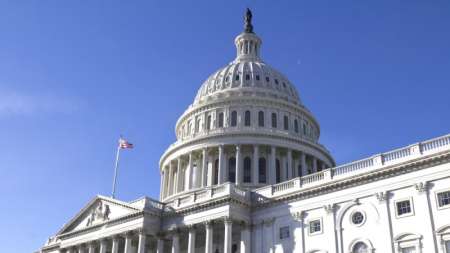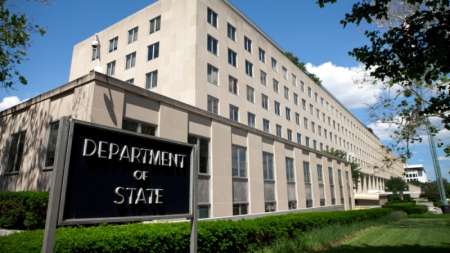Sens. Dianne Feinstein, D-Calif., Amy Klobuchar, D-Minn., and Richard Blumenthal, D-Conn., on July 31, introduced a bill to combat illegal robocalls. […]
In response to the 2017 Cambridge Analytica scandal, Sen. Dianne Feinstein, D-Calif., introduced the Voter Privacy Act on July 31. The legislation would give voters greater control over how their personal information is used by political candidates and campaigns in Federal elections. Feinstein’s office said currently there is no Federal law regulating the collection and use of voter data by political organizations. […]
Sens. Maggie Hassan, D-N.H., and John Cornyn, R-Texas, reintroduced the Advancing Cybersecurity Continuing Diagnostics and Mitigation (CDM) Act on July 30. […]
Sens. Mike Rounds, R-S.D., and Jacky Rosen, D-Nev., introduced new legislation on July 30 that would require the State Department to investigate the potential benefits of establishing a cooperative U.S.-Israel Cybersecurity Center of Excellence. The bill, dubbed the U.S. -Israel Cybersecurity Center of Excellence Act, has garnered bipartisan support in the Senate, and Rep. David Cicilline, D-R.I., has already introduced a companion bill in the House. […]
Rep. Jerry McNerney, D-Calif., co-chair of the House AI Caucus, said last week that artificial intelligence (AI) technologies have the potential to create “tremendous public good,” but also warned of risks the technology poses including job losses. […]
A principal author of Senate legislation that would pump $2.2 billion of Federal funding into development of artificial intelligence (AI) technologies over the next five years said last week that investment would help a host of industry sectors including healthcare, energy, and agriculture. […]
The House Committee on Oversight and Reform approved the Federal Rotational Cyber Workforce Program Act of 2019 on July 25. […]
The Senate Committee on Commerce, Science, and Transportation approved four new pieces of IT-related legislation during today’s committee markup. […]
Sens. Maggie Hassan, D-N.H., Catherine Cortez Masto, D-Nev., Tammy Baldwin, D-Wis., Cory Gardner, R-Colo., Marco Rubio, R-Fla., and Shelley Moore Capito, R-W.V., reintroduced the Advancing Innovation and Reinvigorating Widespread Access to Viable Electromagnetic Spectrum (AIRWAVES) Act on July 23. The legislation will “encourage the Federal government to continue to free up spectrum for commercial licensed and unlicensed use and leverage the success of spectrum auctions to help close the urban-rural divide,” according to the bill’s sponsors. […]
Following the Federal government’s settlement with Equifax regarding its 2017 data breach, Sen. Ron Wyden, D-Ore., pledged to renew his push towards passing data privacy legislation. In a statement on July 22, Wyden urged the passage of his Consumer Data Protection Act, which he initially introduced in November of 2018. […]
The Senate on July 8 unanimously approved the Defending the Integrity of Voting Systems Act, which was sponsored by Sens. Sheldon Whitehouse, D-R.I., Richard Blumenthal, D-Conn., and Lindsey Graham, R-S.C. […]
The House of Representatives has scheduled a vote this week on a bill that would direct the Federal Communications Commission (FCC) to craft rules regarding unwanted robocall and robotext messages that make sure those communications comply with the consumer protection and privacy purposes of Section 227 of the Communications Act. […]
A bill introduced on July 18 by Rep. Dusty Johnson, R-S.D., would establish a rotating consortium of universities with cyber expertise to advise the Department of Defense (DoD) on cybersecurity issues and coordinate academic feedback to DoD requests for assistance. […]
The Department of Homeland Security (DHS) issued a request for information (RFI) on July 16 for Information Assurance Compliance System (IACS) tools that can support FISMA (Federal Information Security Modernization Act) compliance checks and reporting. […]
The House Energy and Commerce Committee voted to approve four bipartisan bills related to cybersecurity and energy grid security on July 17, and sent those pieces of legislation to the full House for consideration. […]
Legislation introduced in the House this week by the co-chairs of the House High-Tech Caucus would order up some initial steps that could lead to the U.S. increasing its influence in creating international standards for internet of things (IoT) devices. […]
Members of the House and Senate introduced a bipartisan bill on July 16 to bar both Huawei from U.S. 5G networks and U.S. companies from doing business with the Chinese telecommunications company. […]
The House on July 15 approved two bills that aim to bolster Small Business Administration (SBA) cybersecurity, and help small businesses combat cyberattacks. […]
Six Republican House members earlier this month introduced the Securing American Research from Cyber Theft Act (H.R. 3611), which would fund pilot projects to establish secure computing enclaves at universities to protect research from cyberattacks. […]
A bipartisan proposed amendment to the House version of the National Defense Authorization Act (NDAA) for fiscal year 2020 would prevent the Department of Homeland Security (DHS) and the Department of Justice (DoJ) from spending funds on any expansion of facial recognition technologies. […]
The National Association of State Chief Information Officers (NASCIO) announced today that it endorsed S. 1846, the State and Local Government Cybersecurity Act of 2019. […]
Small businesses are more likely to lack resources to build robust cybersecurity capabilities, but Sens. Gary Peters, D-Mich., and Marco Rubio, R-Fla., are looking to address that challenge with their recently introduced Small Business Cybersecurity Assistance Act. […]
Rep. Gerry Connolly, D-Va., and House Delegate Eleanor Holmes Norton, D-D.C., have submitted an amendment to the National Defense Authorization Act (HR 2500) for FY2020 that would block the proposed merger of the Office of Personnel Management (OPM) and the General Services Administration (GSA). […]
Members of the House and Senate introduced bipartisan companion bills on June 28 to reduce the threat of “deepfake” videos, which use artificial intelligence (AI) technologies to manipulate original video content. […]
By a vote of 86-8, the Senate voted to pass the National Defense Authorization Act (S. 1790) which includes funding to accelerate artificial intelligence solutions within the Defense Innovation Unit, enhancing cybersecurity, and cloud capabilities. […]
The House voted today to approve $35 million of FY2020 funding for the Technology Modernization Fund (TMF), which provides money to Federal agencies to pursue promising IT modernization projects. […]
Members of the House Homeland Security Committee’s Subcommittee on Cybersecurity, Infrastructure Protection, and Innovation discussed at a June 25 hearing ways the Federal government can help state and local governments (SLGs) deal with their cybersecurity challenges, including providing funding and opportunities to collaborate. […]
Sens. Gary Peters, D-Mich., and Rob Portman, R-Ohio, introduced the State and Local Government Cybersecurity Act on June 18. […]
Sens. Cory Gardner, R-Colo., and Ed Markey, D-Mass., introduced the Hack Your State Department Act on June 12. […]
Sens. Catherine Cortez Masto, D-Nev., Chuck Schumer, D-N.Y., Amy Klobuchar, D-Minn., and Maggie Hassan, D-N.H., introduced the Deter Obnoxious, Nefarious, and Outrageous Telephone (DO NOT) Call Act of 2019 on June 14. The legislation “will improve enforcement and enhance penalties for violations made under the Telephone Consumer Protection Act (TCPA),” according to the bill’s sponsors. […]


